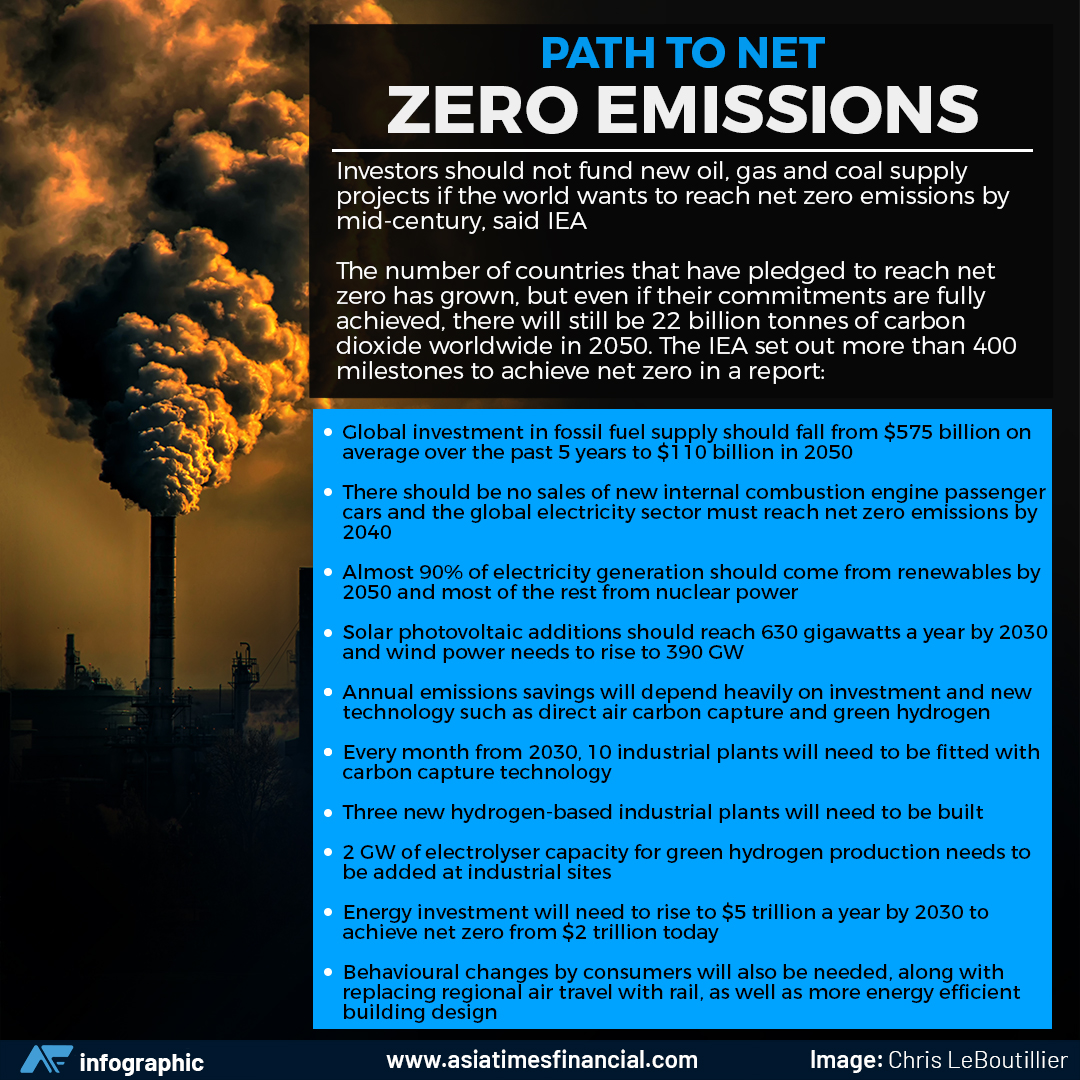(ATF) Oil and gas producers need to halt all new exploration projects from this year if global warming is to be kept in check, the International Energy Agency (IEA) said in a landmark report released on Tuesday.
The moratorium is required to achieve net zero carbon dioxide emissions by 2050, a prerequisite to meet the Paris climate accord goal of limiting global warming to 1.5 degrees Celsius above pre-industrial levels.
About $5 trillion in energy investments per year would be needed by 2030, up from $2 trillion today, the report said.
“We need a historical surge in investment,” Fatih Birol, head of the Paris-based IEA, said, noting that this would add 0.4% annually to global gross domestic product growth. “The bulk of it needs to be in clean energy.”
The IEA’s Net Zero report comes amid more pledges from countries to reach the goal of no net emissions.
But even if their commitments are fully achieved, there will still be 22 billion tonnes of carbon dioxide worldwide in 2050 which would lead to temperature rise of around 2.1C by 2100, the IEA said.
“The pathway to net zero is narrow but still achievable,” Birol said. “If we want to reach net zero by 2050 we do not need any more investments in new oil, gas and coal projects.”
DEVASTATING IMPACTS
The 2015 Paris Agreement on climate change aims to cap the rise in temperatures to as close as possible to 1.5 degrees Celsius above pre-industrial times to avoid the most devastating impacts of climate change, which requires net zero greenhouse gas emissions by 2050.
“This is an incredibly exciting study that indicates a direction of hope,” Francesco Starace, chief executive at Rome-based Enel, the world’s biggest privately owned renewable energy group, told Reuters.
The IEA said its report was the first comprehensive study of how to transition to a net zero energy system by 2050 while ensuring stable and affordable energy supplies, providing universal energy access, and enabling robust economic growth.
It sets out what the agency claims is a “cost-effective and economically productive” pathway, resulting in a clean, dynamic and resilient energy economy dominated by renewables like solar and wind instead of fossil fuels.
The report also examines key uncertainties, such as the roles of bioenergy, carbon capture and behavioural changes in reaching net zero.
With reporting by Reuters
























